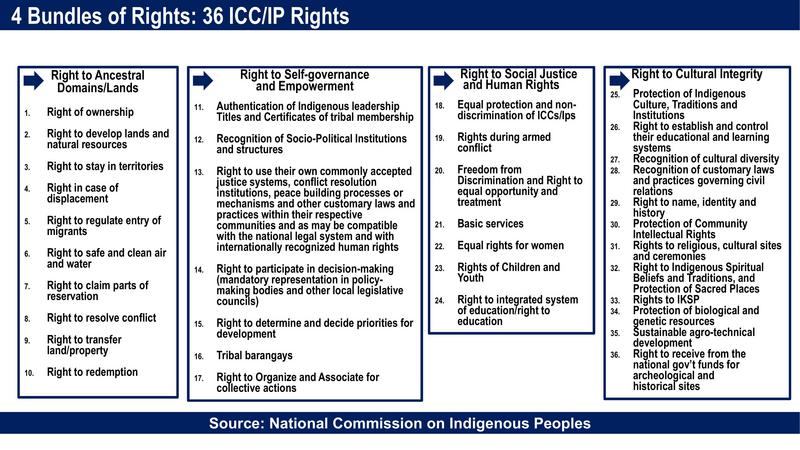Obtaining the approval and trust of indigenous people (IPs)/indigenous cultural communities (ICCs) is one of the biggest challenges faced by mining companies operating in areas forming part of their ancestral domains.
In line with the objective of Diwata-Women in Resource Development’s major advocacy of working with indigenous people, with a special emphasis on IP women and girls, we sought a meeting with the Chairman of the National Commission on Indigenous Peoples (NCIP) Chairman Allen Capuyan to better understand the NCIP’s national development agenda and how the mining industry and other resource development industries may better work with it.
Diwata, in turn, discussed its background, its achievements over the last 10 years (cf. Philippine Resources Journal Issue 2, 2023), and its Tanging Tanglaw: Turning IP Women Into Solar Engineers Project, now the recipient of a grant from the USAID – Energy Secure Philippines Activity.
Chairman Capuyan was joined by, among others, by Executive Director Mervyn Espadero; Commissioner Atty. Rhodex Valenciano, Region III (via Zoom); Commissioner Simplicia Hagada, Region II (via Zoom); Commissioner Gary Cayatt, CAR and Region I; Commissioner Jennifer Sibug-Las, Central Mindanao; Commissioner Atty. Pinky Grace Pareja, Northern and Western Mindanao; Glenda Pua, Division Head, Socio-Economic Development Services; Atty. Caesar Ortega, Director, Ancestral Domains Office; Engr. Kathy Gulunan, Division Chief, Technical Management Services, Ancestral Domains Office; Atty. Gillian Dunuan, Director, Legal Affairs Office; and Atty. Rizzabel Aguilar, Division Head, Legal Affairs Office.
IPs/ICCs, numbering 16 million, comprise 16% of our total population, yet they are among the most underserved and marginalized. It is therefore important that their rights are upheld.
Chairman Capuyan highlighted four (4) bundles of rights, namely: (1) right to ancestral domains/lands; (2) right to self-governance and empowerment; (3) right to social justice and human rights; and (4) right to cultural integrity, as well as thirty-six (36) ICC/IP rights (please refer to the table).

More significantly, Chairman Capuyan highlighted that with their great potential, our ICCs/IPS must be “capacitated as resilient, responsive, and relevant partners of both the public and private sector to contribute to the recovery of our national economy and the strengthening of local industries.”
He highlighted “13 Drivers for Nation Building”, which are key areas of cooperation to propel holistic, inclusive, and sustainable development:
- Improved food security through enhanced food production (DA, PCA, BFAR)
- Access to renewable energy projects such as geothermal, hydroelectric, and wind sources to support economic activities (DOE);
- Protection and promotion of arts and culture (DOT, NCCA);
- Development of ecotourism destinations through cultural tourism and the creation of cultural highways (DOT);
- Interventions for climate change mitigation through biodiversity and ecosystems preservation, protection, and adaptation programs (CCC, DENR);
- Opening of local economic zones for resource processing and manufacturing (PEZA);
- Improved logistical chains through development of infrastructure and road networks between provinces and regions (DPWH, DA);
- Enhanced and responsible mineral extraction industry (DENR);
- Sustainable and responsible plantation industries (banana, pineapple) and agro-industries to boost local agricultural economies (DA, DTI);
- Relocation sites for informal settlers in urban areas (HUDCC, NHA);
- Improved access to potable water for domestic, agricultural, and commercial usage (LWUA);
- Implementation of the national greening program and local reforestation projects (DENR); and
- Decreased cost for the maintenance and continuation of security operations in geographically isolated and disadvantaged areas (OPAPRU & AFP).
Items 2, 5, 8 and 12 are obvious areas of cooperation between the mining industry and the NCIP, particularly in linking critical minerals to a clean energy transition.
As we left the NCIP Central Office after an almost two and a half hour meeting, I was a struck by how much time and effort the Chairman and his staff had devoted to preparing for our meeting. Each of the members of the Diwata team had left with multi-volume copies of NCIP’s publications. Immediately after, we were sent copies of a video that they had begun presenting, but did not have the luxury of time completing, on all the ICCs/IPs in the Philippines, making me realize how much more I need to learn. For the most part, my understanding of ICCs/IPs is from an academic or legal perspective and often from “compliance with legal requirements” point of view.
Hopefully, our recent engagement with the NCIP will not be the last and will just be the start of more fruitful conversations.
Patricia A. O. Bunye is a Senior Partner at Cruz Marcelo & Tenefrancia where she heads its Mining & Natural Resources Department and Energy practice group. She is also the Founding President of Diwata-Women in Resource Development, Inc., a non-government organization advocating the responsible development of the Philippines’ wealth in resources, principally through industries such as mining, oil and gas, quarrying, and other mineral resources from the earth for processing.










